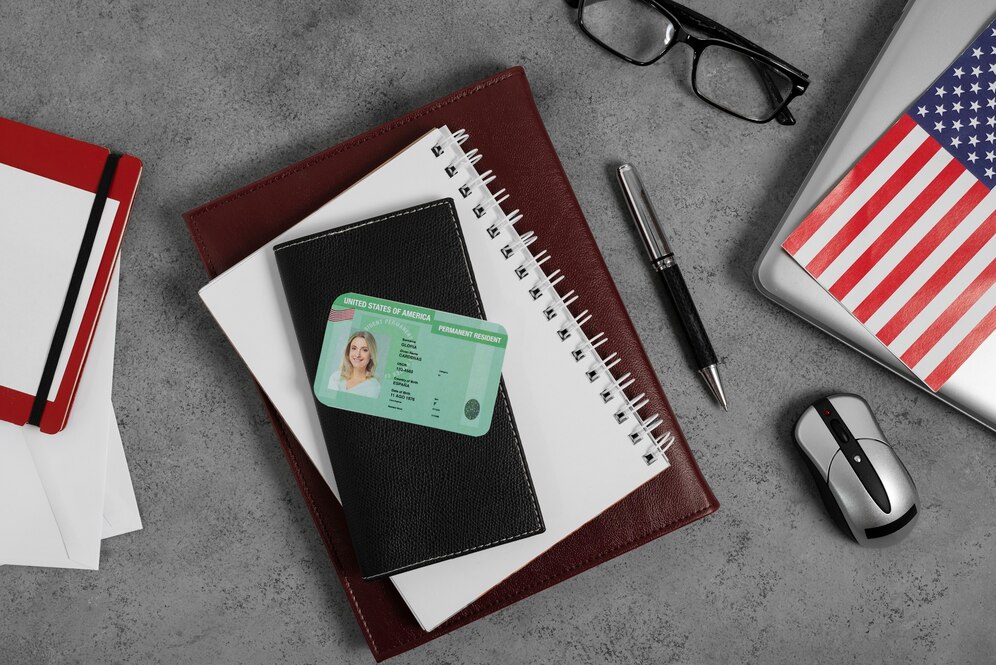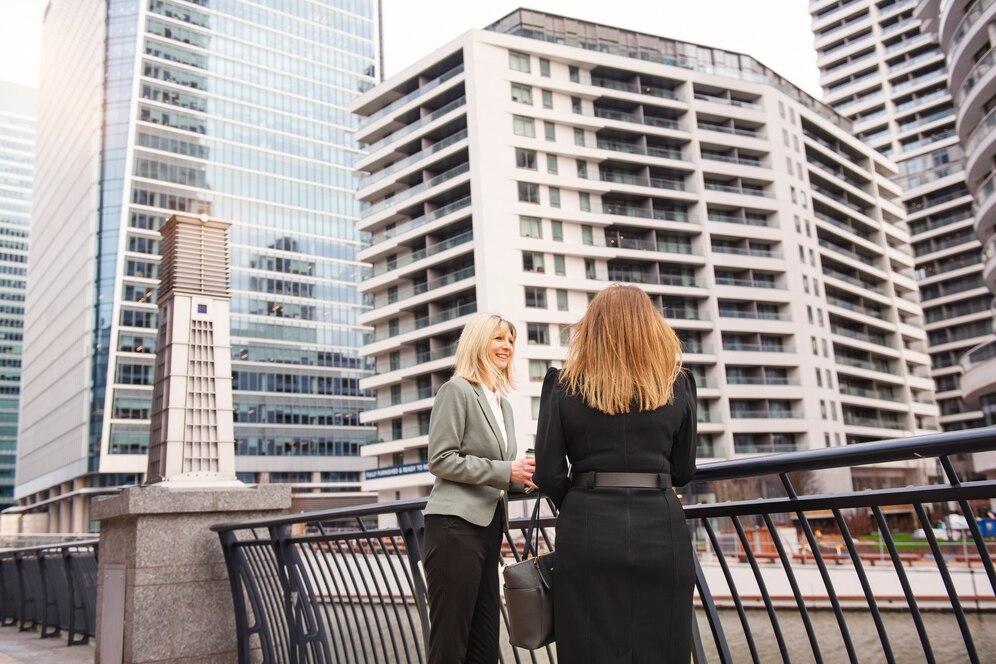Making Your Way Up The Dubai Ladder: Settle Your Career In The Middle East
5 Mins Read
Published on: 23 March 2024
Last Updated on: 09 November 2024

toc impalement
Dubai is a city known for its high standard of living, modern infrastructure, healthcare facilities, and vibrant cultural scene.
Despite the high cost of living, salaries are competitive, and numerous job opportunities exist across various sectors.
Moreover, Dubai’s work culture is highly professional, with punctuality and respect for hierarchy.
Also, English is a widely spoken language, making it easy for expats to communicate.
Furthermore, Dubai’s lifestyle combines modernity and tradition. This offers a variety of leisure activities, cultural attractions, and dining options.
However, it is important to respect local traditions due to its Islamic nature.
This post will help you with tips for those considering moving to Dubai. From settling down in your career to raising a family, the city can become your home!
Securing The Green Card

The UAE has recently announced the introduction of the Green Visa.
It is a five-year residence permit to attract skilled professionals, talented individuals, freelancers, investors, and entrepreneurs. This Visa permits you to receive premium residency in Saudi.
Additionally, after your permit expires, you can stay in the UAE for up to six months during flexible and extended grace periods.
The Green Visa UAE costs about AED 2,280. However, this covers the ID card fee (AED 575) and medical services fee (AED 320).
The government aims to enhance the job market’s competitiveness and flexibility and promote stability among UAE residents and their families.
The major advantages of the UAE Green Visa include easy access to the following:
- Residence permits for family members.
- Sponsorship of male children up to 25 years.
- Right to grant residence permits to children of determination.
More flexible grace periods, lasting up to six months after the permit expires, are another benefit of the Green Visa. When living permanently, you can also avail dubai tourist visa for your family and loved ones for occasional visits and holidays.
Understanding The Cost Of Living In The UAE
Dubai’s average monthly cost of living is AED 10,000 to AED 15,000 for basic expenses like accommodation, food, transportation, and utilities. However, this can vary depending on lifestyle and preferences.
Given below are the different segments of lifestyle and how much you have to spend on them—
1. Cost Of Fooding
Dubai’s food cost varies based on dietary preferences, shopping location, and frequent dining habits.
However, groceries can go around AED 1,000 to AED 1,500 per month for a single person.
Dining costs vary depending on the type of restaurant and cuisine. A mid-range meal costs AED 50 to AED 100 per person, while fast-food meals cost AED 25 to AED 30.
On the other hand, high-end restaurants can cost significantly more, with a meal for two at a high-end restaurant costing AED 500 to AED 1,000.
2. Cost Of Lodging
Dubai is a popular destination for expatriates. Therefore, most people rent a property, and some buy it.
Therefore, rents are higher than in most other countries, and expatriates typically pay at least 3 months’ rent upfront.
Popular areas for Western expats include Marina, JLT, JBR, and Downtown.
Take a look at the estimated costs of lodging arrangements:
- 1-bedroom apartments in these areas typically cost AED 70,000-85,000 a year.
- 2-bedroom apartments range from AED 90,000-120,000.
- Villa communities, often near schools, are popular with expat families.
However, prices in Dubai vary significantly depending on property size, community, and location.
3. Cost Of Education For Children
Dubai boasts an impressive selection of international schools with exceptional academic standards.
Primary schools usually charge AED 40,000 yearly, while secondary schools charge around AED 70,000 yearly.
4. Cost Of Healthcare
Unlike some countries like the USA, the UAE does not impose income tax, which requires citizens to pay tax on earnings abroad.
However, a 5% sales tax is charged on all products and services. Healthcare and education are private, and employers are required to provide private medical insurance to employees.
The UAE’s modern healthcare facilities attract professionals from around the world.
Finding Your Home In Dubai

Dubai is a popular destination for expats, particularly those without employer-provided accommodation.
To secure a place to live, one must first locate a short-term rental, purchase a property, and arrange transportation.
Employers frequently offer accommodation allowances and salaries, so conducting thorough research is advised to find the best accommodations.
Searching for accommodation during the summer when demand is low is recommended, as rent in Dubai can vary seasonally.
Shared apartments in the Marina area can cost between 3,500 and 6,000 AED per month, while one-bed studios in Business Bay can cost around 90,000 AED.
Residential buildings often feature amenities such as pools, gyms, and security, which can help save on gym memberships.
Young, free, and single western expats typically prefer the Marina area, JBR, and JLT, while downtown and Business Bay are popular but more expensive.
Families favor Mirdif, Emirates Hills, Silicon Oasis, Motor City, and Arabian Ranches villa complexes.
Finding A Job In Dubai
You can have a unique experience with job-hunting in Dubai. Most business owners connect through LinkedIn and subsequently call you for an interview.
However, they only have job-hunting experiences in Dubai through the struggles encountered by their friends.
Dubai can be an expensive city to live in, especially if one is not earning a wage.
Furthermore, if an individual is only in Dubai on a tourist visa, they must make multiple trips to Oman.
It is important to note that Asian expats predominantly fill up service or manual labor jobs in Dubai. However, these jobs could come with minimal wages.
Moving Alone To Dubai
Moving to a new city, especially one as unique as Dubai, can significantly impact your life and the lives of those closest to you.
It’s essential to consider not only how you will adapt to the new environment but also how your children will adjust to a new school and how you will maintain your desired social life.
Maintaining good communication with family and friends during a stressful relocation process is crucial for a positive transition.
Stay aware of potential challenges and prepare to adapt to your new environment. This can ensure a smoother and more successful transition for yourself and those around you.
Making Dubai Your Permanent Home

To become a permanent resident of Dubai, one must obtain a residency visa through employment, property investment, or business ownership.
Therefore, securing a job offer from a Dubai-based employer is necessary for employment. The employer will sponsor the visa and provide the required documentation.
Moreover, a property investment of over AED 1 million allows for a renewable residency visa.
Business ownership requires proof of ownership and meeting other requirements. The General Directorate of Residency and Foreigners Affairs (GDRFA) can also issue a residency visa for businesses in Dubai.
Maintaining permanent residency status is necessary to comply with rules and regulations, such as health insurance and local customs. Renewal of the residency visa is also required.
Read Also:


















Comments Are Closed For This Article